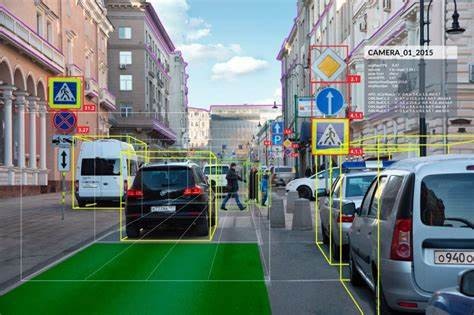How data privacy can be improved in the autonomous driving industry?
The resounding message for organizations is clear: to meet today’s growing consumer concerns about data security, it is time to integrate data privacy procedures into the decision-making process. Despite an uncertain outlook, the pandemic has enforced the public’s resolve to have more control over their data. In a recent survey, when asked what factors are important for potential customers to consider before sharing their data with a company, 63% of the focus group pointed to secure collection and storage. In contrast, the remainder said it was the data shared and trust in the company collecting their data.
So just how can autonomous vehicle companies gain the trust of the public?
Trustworthiness:
In the current digital environment, the most challenging aspect for most companies is gaining the trust of their target audience and the general public as a whole. Growing sceptical feeling towards data gathered by AI has caused people to question the intention behind its use, valid reasons for collection, and current security measures. There will always be a temptation to use data for other reasons such as marketing, operational or commercial uses. However, autonomous driving companies should ensure that data collected by the vehicle’s sensors are for specified, explicit, and legitimate purposes and not further processed in a manner that is incompatible with its initial purpose.

In addition, companies should be ready to provide the following details:
- The Contact details of their Data Protection or compliance Officer
- The purpose or purposes of processing data as well as legal basis
- With whom the data will be shared
- Data retention duration
When data is collected by autonomous vehicles, companies must be clear about why it’s being collected and how it’s going to be used. If a person requests further information regarding the processing of their data, then companies should provide this promptly. Any data collected must also be adequate, relevant and limited to the minimum amount of data required for its use.
Accountability:
Companies and organizations must ensure that appropriate measures are in place to secure stored personal data. For example, implementing two-factor authentication when accessing systems or fully encrypting stored data. Major data regulations advise companies to run regular system diagnostics on onboard computing systems, cloud servers, and GNSS locating receivers in autonomous vehicles. This ensures that data is only being transmitted to the intended person. It is essential to understand how the public’s expectations on data privacy have changed, what they want in exchange for their data, and what this means for the future of data privacy. To adapt and thrive in the new data privacy landscape, businesses must align their policies with the wider publics expectations.
To summarise, privacy is one of the rights that people constantly demand from companies. Complete freedom from privacy issues will encourage users to adapt to new autonomous technologies freely. On the bright side, companies are now increasingly aware of their consumer expectations and are making the necessary adjustments.








